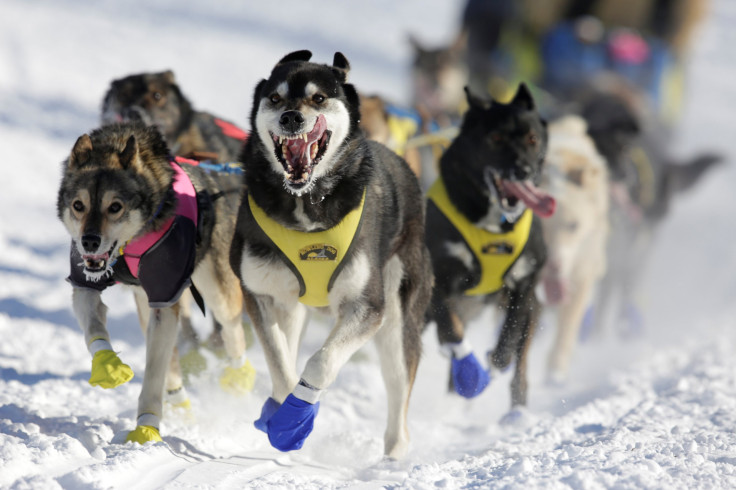Four-Time Iditarod Winner Allegedly Gave Banned Substance To Dogs During 2017 Race

The officials of Iditarod Trail Sled Dog Race — an annual long-distance sled dog race that takes place in Alaska — identified four-time champion Dallas Seavey on Monday as the musher whose dogs recently tested positive for banned opioid pain reliever in this year's race, Iditarod Trail Committee (ITC) said.
The investigation into the canine drug use began earlier this month when the committee announced that four dogs in this year's race tested positive for the opioid pain reliever, Tramadol.
The test on Seavey's dog team was done six hours after completion of the race, officials said, according to KIRO7, a CBS-affiliate. Race officials said the drug could have been administered 15 hours or less before the drug test. Seavey won the Iditarod in 2012, 2014, 2015 and 2016.
This is the first time in the race's history since 1994 that the dogs participating in the event tested positive for a prohibited substance. Seavey's family has been registering participation in the event for a long time.
The board had earlier decided not to disclose the name of the musher involved, but eventually, it did so "because of the level of unhealthy speculation involved in this matter," the ITC said in its press release.
However, Seavey has denied the allegations and has also decided to withdraw from the 2018 race as a sign of protest against the accusations."I have never given any banned substance to my dogs," Seavey said in a YouTube video that he posted on his Facebook page.
The 30-year-old musher said he expected the committee to ban him from the race for speaking out referring to a so-called gag rule that disallows mushers to make statements critical of the race or sponsors. "I have done absolutely nothing wrong," Seavey said.
"The Iditarod can try to run me over, they can try to throw me under the bus," he said in the video, "but I’m going to be honest to myself and they’re going to find out that I don’t fit under the bus."
Seavey also pointed toward somebody else trying to give the prohibited drug to his dogs. He said he spent several months trying to explain how his dogs' results were positive for Tramadol but in vain.
"I believe this was given to my dogs maliciously," he said. "That's one of the options. I think that is the most likely option. There are numerous ways that could have been done."
After Seavey's dogs tested positive for the drug, the ITC revised the race rule dealing with canine drugs. The new rule says that it will hold mushers responsible for any positive tests in future races unless they can prove that positive results happened due to circumstances beyond their control.
"ITC anticipates that the new version of Rule 39 will offer certainty to the race and mushers concerning standards and obligations," the committee's press release said.
Before the new ruling, canine drug use rule could also be interpreted to require that race officials provide proof that a musher intended to administer the prohibited substance, KIRO7 reported.
© Copyright IBTimes 2024. All rights reserved.






















